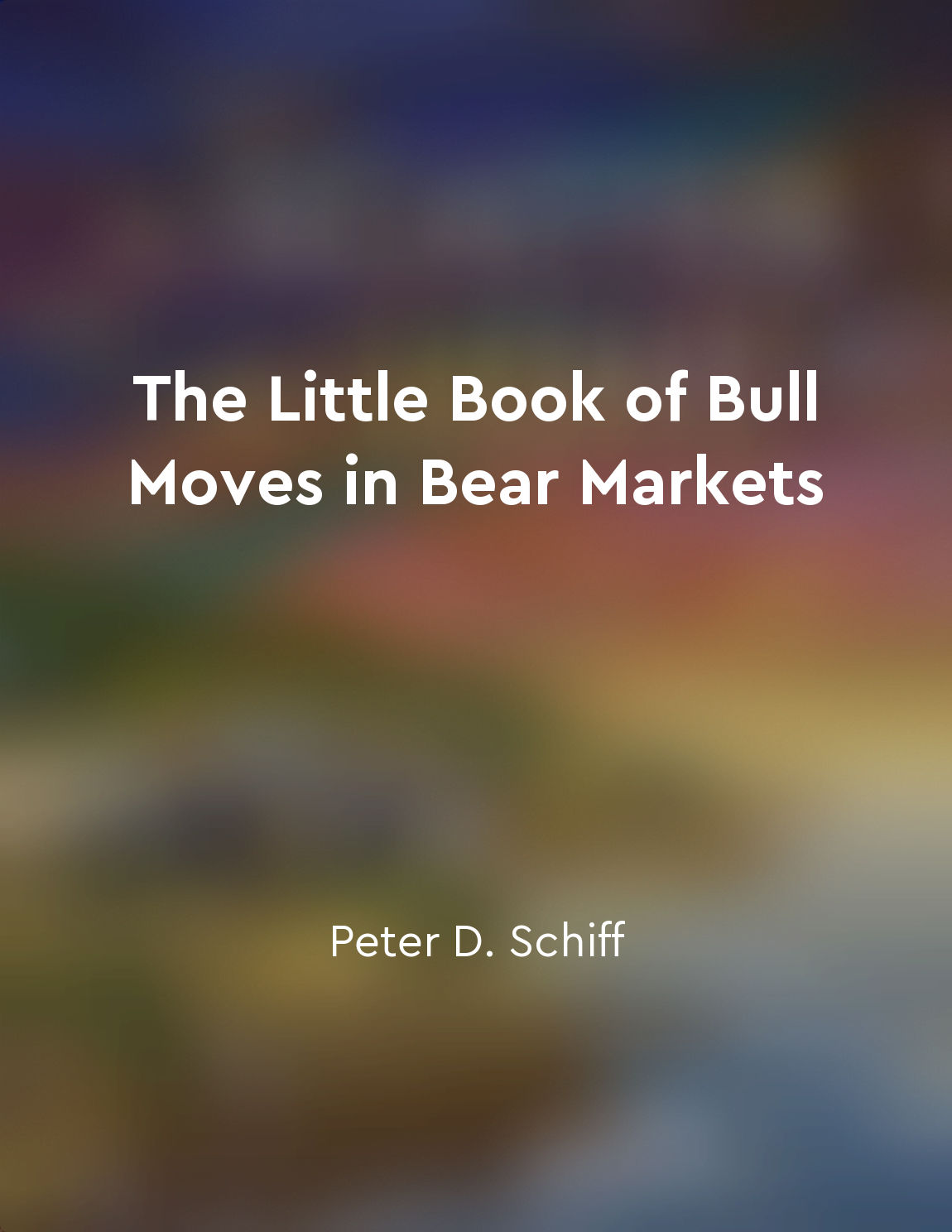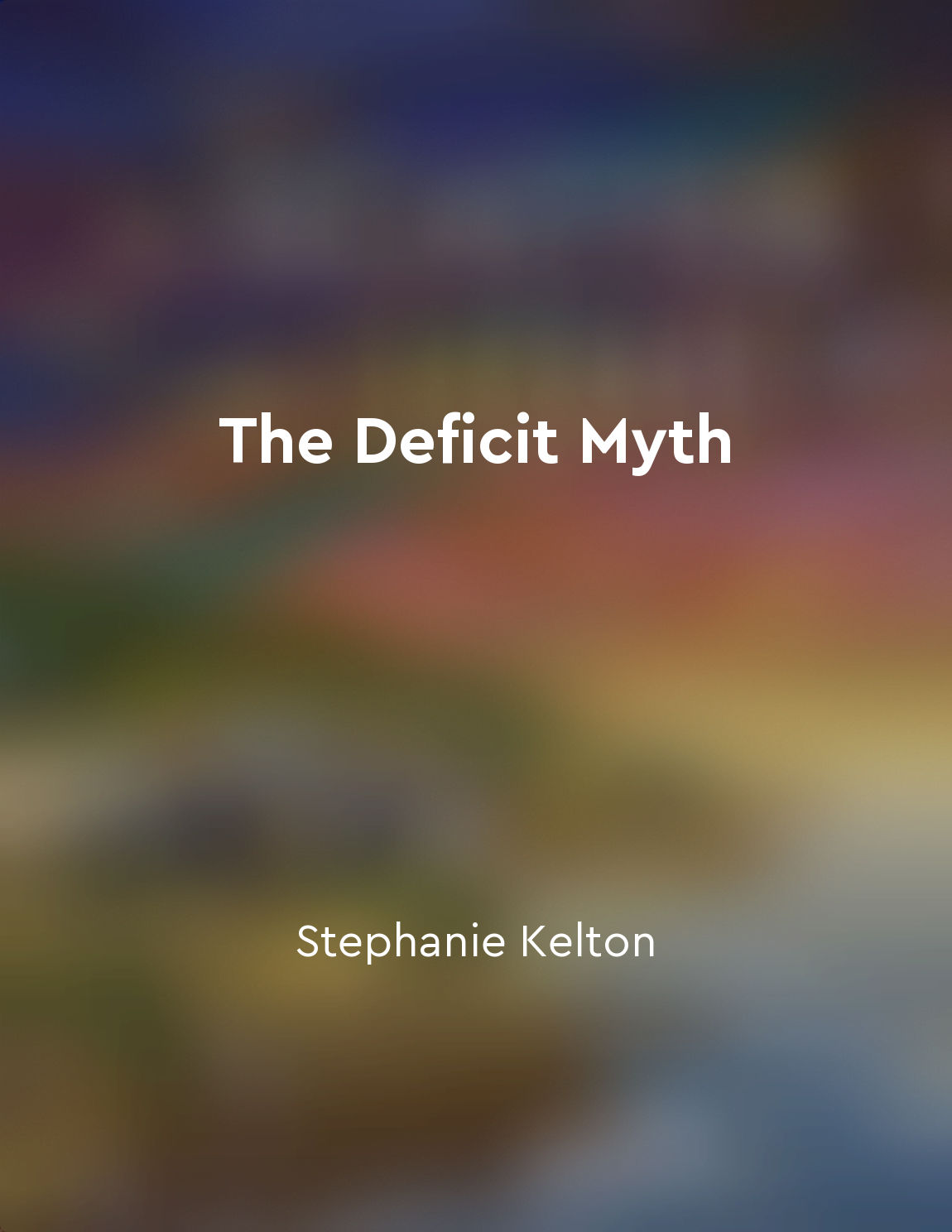Deficits can be a tool for achieving social justice from "summary" of The Deficit Myth by Stephanie Kelton
Deficits are often viewed as a negative aspect of government finances. They are seen as a burden that must be reduced or eliminated in order to achieve a healthy economy. But what if deficits were not inherently bad? What if deficits could actually be a tool for achieving social justice? This concept may seem counterintuitive at first, but it is a central theme in understanding modern monetary theory. The prevailing belief is that the government must balance its budget like a household, spending only what it can afford. This belief leads to austerity measures that cut social programs and limit government spending, all in the name of fiscal responsibility. However, this approach ignores the fact that the government has the power to create money out of thin air. Unlike households, the government can never run out of money. By embracing deficits as a tool for achieving social justice, we can shift our focus from balancing the budget to balancing the economy. Deficits can be used to fund programs that benefit society as a whole, such as healthcare, education, and infrastructure. These investments can create jobs, stimulate economic growth, and reduce inequality. Furthermore, deficits can be a powerful tool for addressing pressing social issues, such as poverty, unemployment, and climate change. By using deficits to fund programs that address these issues, we can create a more equitable and sustainable society. Instead of viewing deficits as a burden to be minimized, we can see them as a means to achieve social justice and build a better future for all. In order to fully leverage deficits as a tool for achieving social justice, we must rethink our understanding of government finances. We must recognize that deficits are not inherently bad, but rather a necessary component of a functioning economy. By embracing deficits and using them strategically, we can create a more just and prosperous society for everyone.Similar Posts
Individuals must report their income accurately to comply with tax regulations
It is essential for taxpayers to accurately report their income to abide by tax laws. Failing to do so can result in penalties ...
Minimum wage laws can lead to unemployment
Minimum wage laws, like other price controls, can lead to unintended consequences. When the government imposes a minimum wage t...
Fiscal responsibility
Fiscal responsibility is a concept that has been consistently emphasized by policymakers and economists alike. It refers to the...

Keep a longterm perspective when investing
When it comes to investing, it is crucial to maintain a long-term perspective. Short-term fluctuations in the market can be mis...

We should focus on the real resources available to the government, not just the money supply
The government's ability to spend money is not constrained by the amount of money it has in its coffers. Instead, the real limi...
Education will need to adapt to new realities
In order for education to remain relevant and effective in the face of rapid change, it must be willing to evolve and adapt to ...
The Role of Supply and Demand in the Economy
Supply and demand play a crucial role in the economy. They are like two blades of a pair of scissors - they work together to de...
Economic growth can lead to environmental degradation
The phenomenon of economic growth is a complex one that can have far-reaching consequences beyond just the expansion of materia...
Fiscal federalism explores the division of responsibilities between levels of government
Fiscal federalism is a concept that delves into the intricate web of responsibilities that are divided between different levels...
GDP measures total income in an economy
GDP, or gross domestic product, is a measure of the total income of everyone in the economy. It is the market value of all fina...
